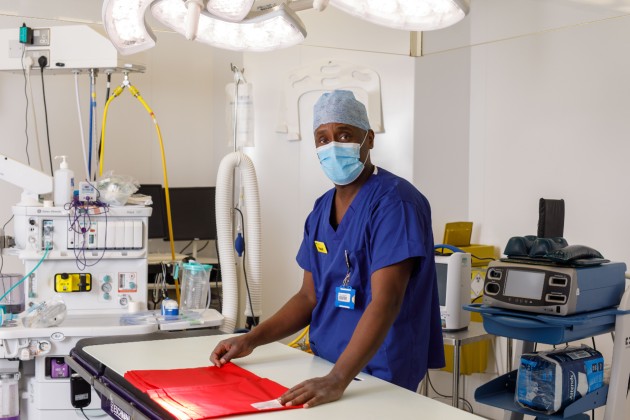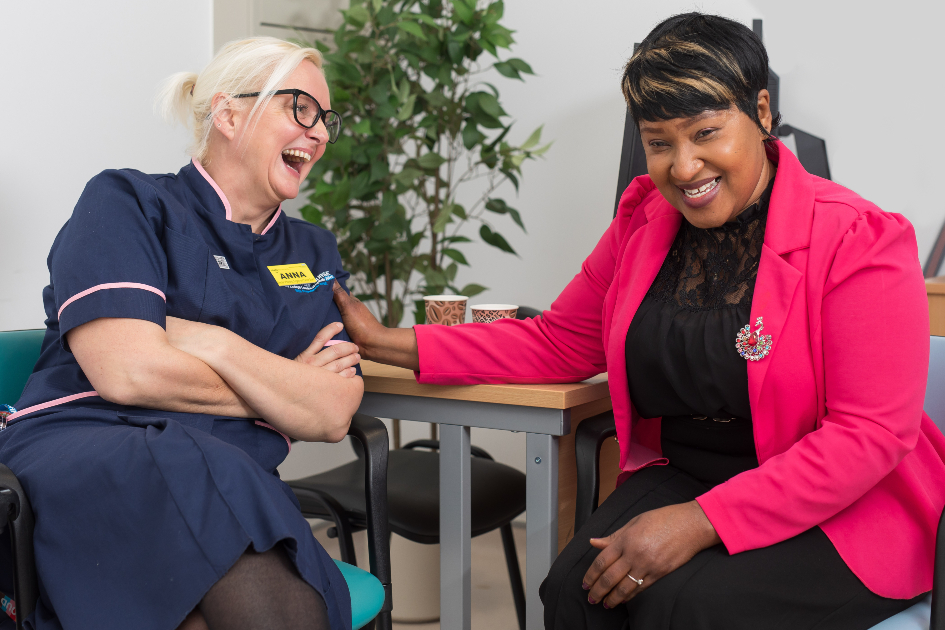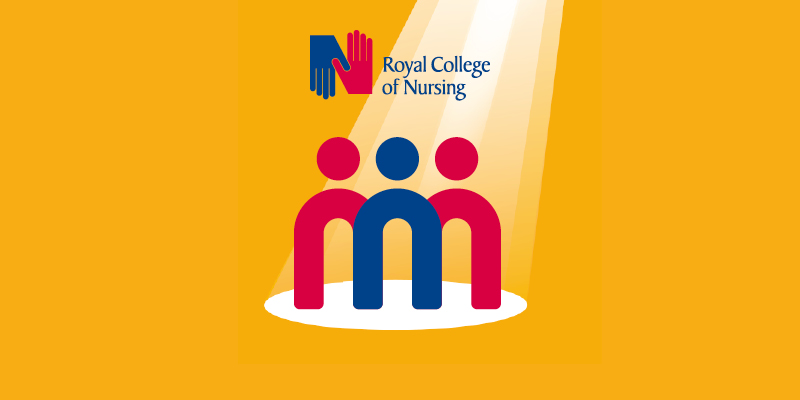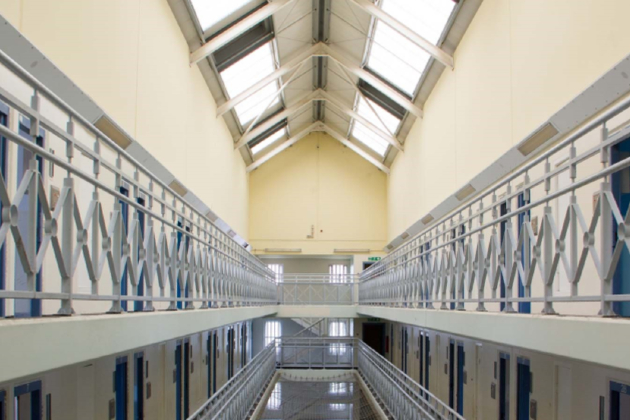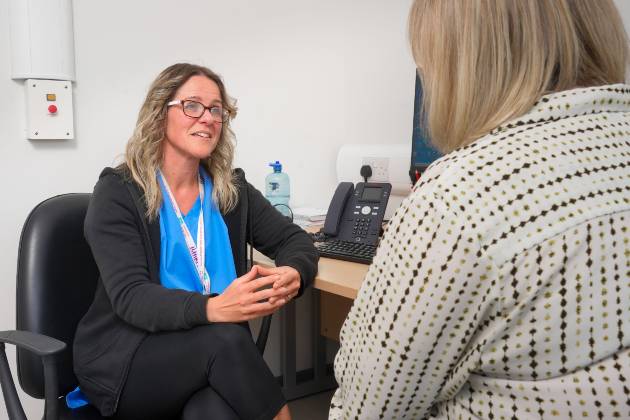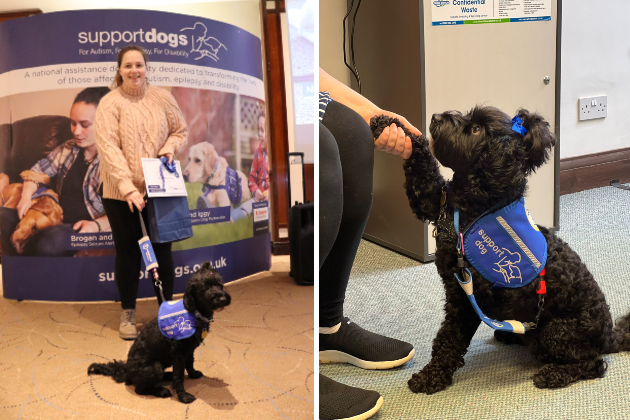“For me, one of the most rewarding things about my job is the impact you have on patients,” says Yusuf Yousuf. “Often, you’re unaware of the effect you’ve had, but days – sometimes even weeks – later, patients remember you. Sometimes we get notes from those we’ve helped, or their families, and that really gives you a boost.”
For the first 10 of almost 15 years working in the NHS, Yusuf was a porter. “I loved it,” he recalls. “After about eight years I thought I really liked hands-on care, especially talking to patients. I was thinking, I could do more with this, and then someone suggested becoming a health care support worker.”
Two years later Yusuf got his first health care support worker (HCSW) post working at the Royal London Hospital on an older people’s ward, where he stayed until 2020. “It was exactly what I needed,” says Yusuf. “It was a perfect fit. I really enjoyed being with the patients, finding out their life stories. Developing those kinds of skills can be something that worries people, but you pick it up on the job, crafting your skills and getting better and better, with the support of your team.”
Many patient interactions are with health care support workers
As the world began grappling with the growing COVID-19 pandemic, Yusuf made the decision to work closer to his home in North London, successfully applying for an HCSW post based in operating theatres at Whittington Hospital, an eight-minute walk from his house. It is a very different environment.
“My role now is much more technical and it’s taken me a while to learn everything,” says Yusuf. Day-to-day responsibilities include looking after the equipment and making sure the theatres are ready – with health and safety, and infection control taking high priority. He also supports other members of the team, including registered nurses, ODPs (operating department practitioners), anaesthetists and surgeons.
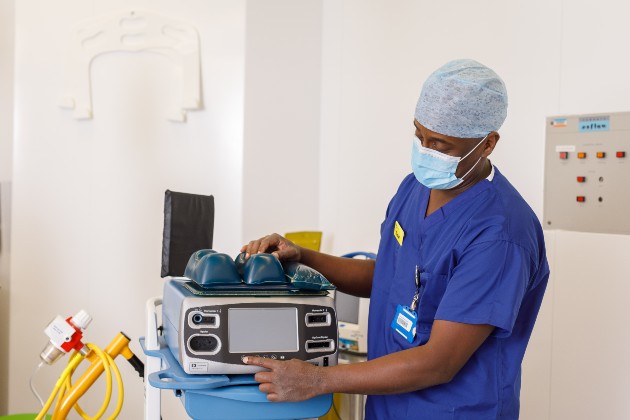
For patients needing orthopaedic surgery, he may be asked to position them correctly before their procedure takes place.
“It’s a very interesting job, and I enjoy the challenge it brings, especially learning new things, but I do miss the interaction with patients,” says Yusuf. “As we see them in the theatre, they are usually asleep after their anaesthetic.”
To make sure he maintains his interpersonal skills, he does regular bank shifts caring for older people as well as on surgical and other wards. “I made myself a promise not to lose those skills. Here I can continue to practise bedside care, carrying out clinical observations,” he explains.
Key to his approach to patient care is treating everybody as an individual. “Everyone is different and how you care for them needs to reflect that,” says Yusuf. “I might like my tea with two sugars, others drink their coffee with no milk. Once you approach patients looking at what really matters to them, you’ll always win. And it will give you great personal satisfaction too.”
Keen to spread awareness about the importance of HCSWs, Yusuf took part in the NHS England campaign focusing on recruitment and retention, chairing the steering group for the first few months.
“The underappreciation of our role is the biggest challenge and it can be disheartening, especially from colleagues who should know better,” says Yusuf. “Many patient interactions are with health care support workers.
"Ours is a pivotal role, but a lot of people still don’t understand or appreciate that. I’ve been told by a service manager that trying to retain registered nurses made them lose sleep, but they didn’t give much thought to keeping health care support workers, as they could always get more through the door.
"If you ask any registered nurse how vital we are to the team, they will tell you as they understand our importance – yet for others, we’re replaceable.”
Everyone is different and how you care for them needs to reflect that
“We’re the eyes and ears of the ward,” says Yusuf. “People don’t come into hospital for a good time. They’re anxious, don’t want to be there and I understand that. But if you can take the patient’s mind off what’s happening and put them more at ease, you can make a massive difference.”
Further information
From careers advice to professional development, the RCN provides a range of support for nursing support workers.
- Advice and expert tips on career progression, including pathways leading to band 4 or 5 roles. You can also book free career coaching, get advice on writing your CV and improving your IT skills.
- The RCN offers a variety of learning resources for nursing support workers, including clinical skills, such as dementia, suicide awareness and end-of-life care.
- First Steps – an online learning tool – covers the key aspects of assisting nursing practice.
- The RCN UK Nursing Support Workers Committee influences policy and strategy. Find out about their work and keep up to date with the latest developments.


